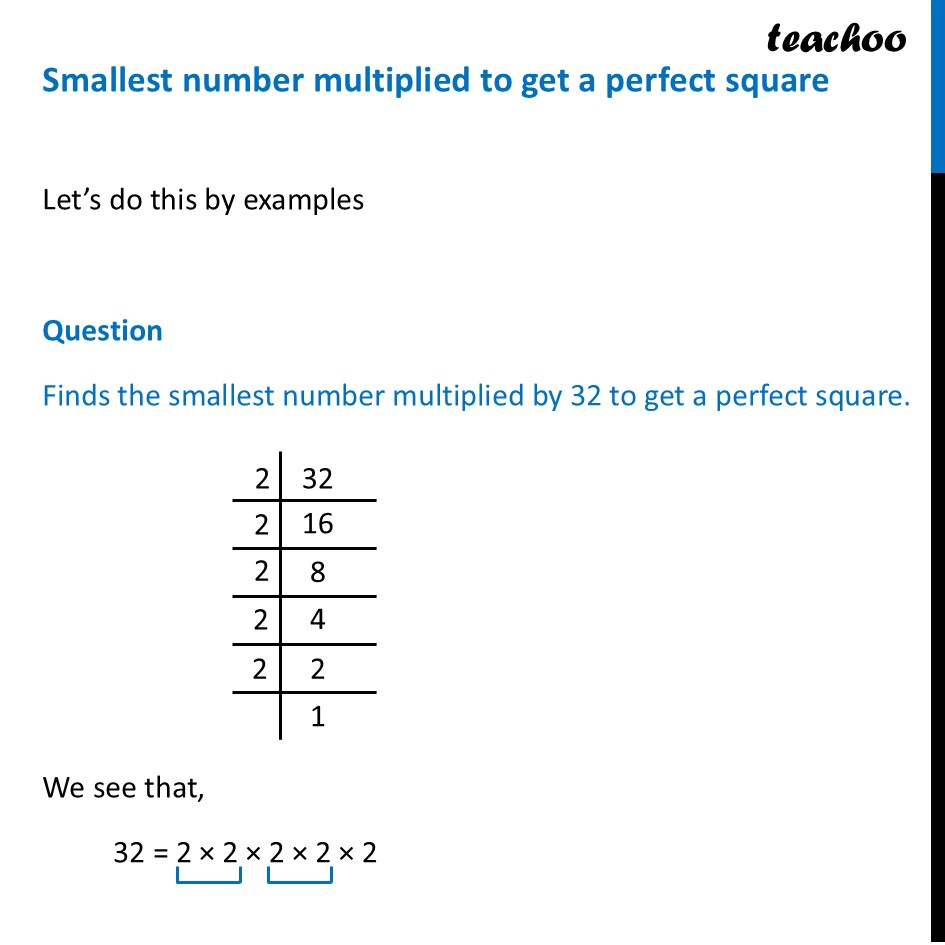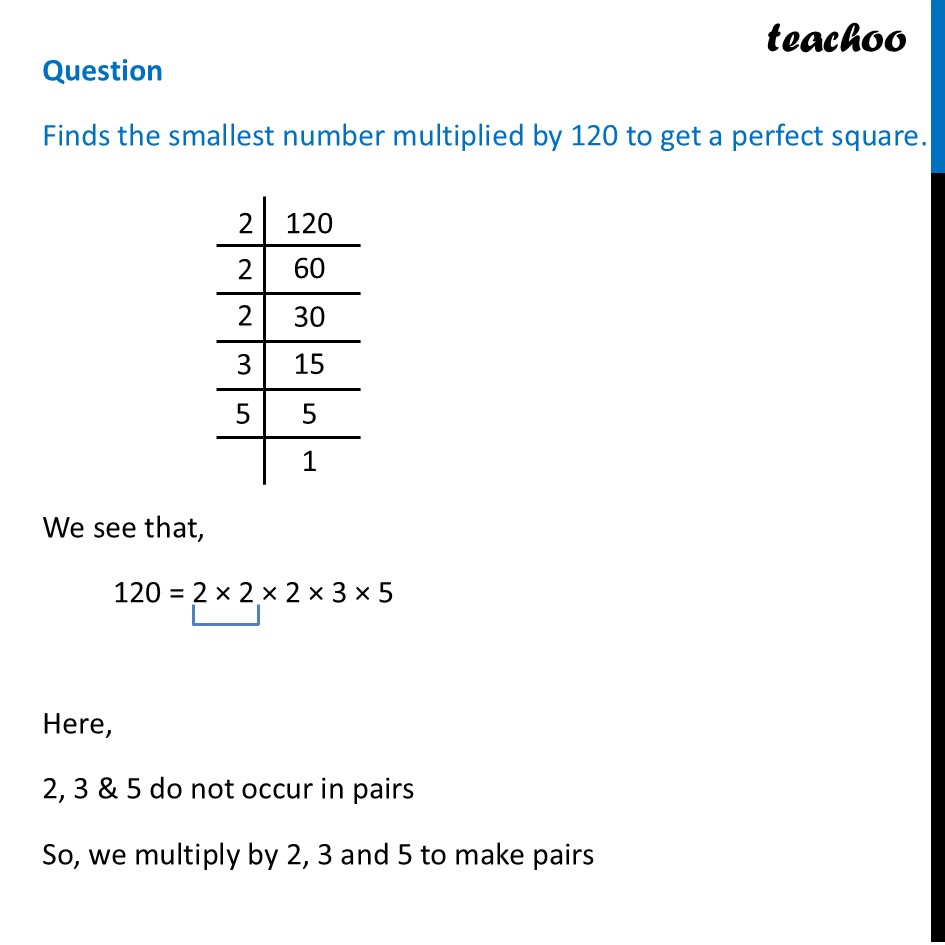





Smallest number multiply or divide to get perfect square
Smallest number multiply or divide to get perfect square
Last updated at July 30, 2025 by Teachoo






Transcript
Smallest number multiplied to get a perfect square Let’s do this by examples Question Finds the smallest number multiplied by 32 to get a perfect square. We see that, 32 = 2 × 2 × 2 × 2 × 2 Since 2 does not occur in pair, we multiply by 2 to make it a pair So, our number becomes 32 × 2 = 2 × 2 × 2 × 2 × 2 × 2 Now, it becomes a perfect square. So, we multiply 32 by 2 to make it a perfect square Question Finds the smallest number multiplied by 90 to get a perfect square. We see that, 90 = 2 × 3 × 3 × 5 Here, 2 & 5 do not occur in pairs So, we multiply by 2 and 5 to make pairs So, our number becomes 90 × 2 × 5 = 2 × 3 × 3 × 5 × 2 × 5 = 2 × 2 × 3 × 3 × 5 × 5 Now, it becomes a perfect square. So, we multiply 90 by 2 × 5 i.e. 10 to make it a perfect square Question Finds the smallest number multiplied by 120 to get a perfect square. We see that, 120 = 2 × 2 × 2 × 3 × 5 Here, 2, 3 & 5 do not occur in pairs So, we multiply by 2, 3 and 5 to make pairs So, our number becomes 120 × 2 × 3 × 5 = 2 × 2 × 2 × 3 × 5 × 2 × 3 × 5 = 2 × 2 × 2 × 2 × 3 × 3 × 5 × 5 Now, it becomes a perfect square. So, we multiply 120 by 2 × 3 × 5 i.e. 30 to make it a perfect square